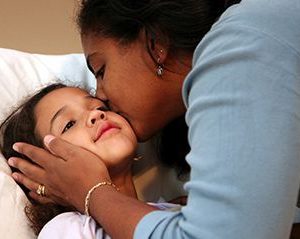- Are You Making This Expensive Thermostat Error This Winter?
- Recognizing the Signs of Hypothyroidism
- 10 Strategies to Overcome Insomnia
- Could Artificial Sweeteners Be Aging the Brain Faster?
- Techniques for Soothing Your Nervous System
- Does the Water in Your House Smell Funny? Here’s Why
- Can a Daily Dose of Apple Cider Vinegar Actually Aid Weight Loss?
- 6 Health Beverages That Can Actually Spike Your Blood Sugar
- Treatment Options for Social Anxiety Disorder
- Understanding the Connection Between Anxiety and Depression
Should Your Child Get a COVID Test?

If you’re trying to decide whether to have your child tested for COVID-19, talk with your pediatrician, the American Academy of Pediatrics (AAP) suggests.
Children and teens with COVID-19 symptoms should be tested immediately. This is especially important if they’re going to school, playing sports or have in-person jobs, according to the academy.
Testing is also recommended before medical procedures such as surgery.
Some states require testing for SARS-CoV-2 after a person travels outside the state or country.
The AAP recommends waiting to test for at least four days after a child has been in close contact with someone who has COVID-19 — so long as the child has no symptoms.
Close contact means having been within 6 feet of a person with confirmed or probable COVID-19 for a total of 15 minutes or more over a 24-hour period, the AAP said.
There are three main types of COVID-19 tests. Molecular and antigen tests check for active infections, while antibody tests show whether a person has been infected in the past. Your child’s doctor can explain what each test does and when tests can be most useful.
Many test locations can provide results within one to three days; some provide same-day results.
After your child has a test, it’s important for you to discuss results with the doctor and learn what to do next, according to the academy.
Anyone with a positive antibody test should continue following safety measures such as wearing face coverings and physical distancing, the AAP stressed.
The academy said antibody tests should not be used to make decisions about entering or returning to group settings like schools, child care or dorms.
More information
The American Academy of Pediatrics has more on COVID-19.
SOURCE: American Academy of Pediatrics, news release, Jan. 11, 2021
Source: HealthDay
Copyright © 2026 HealthDay. All rights reserved.










